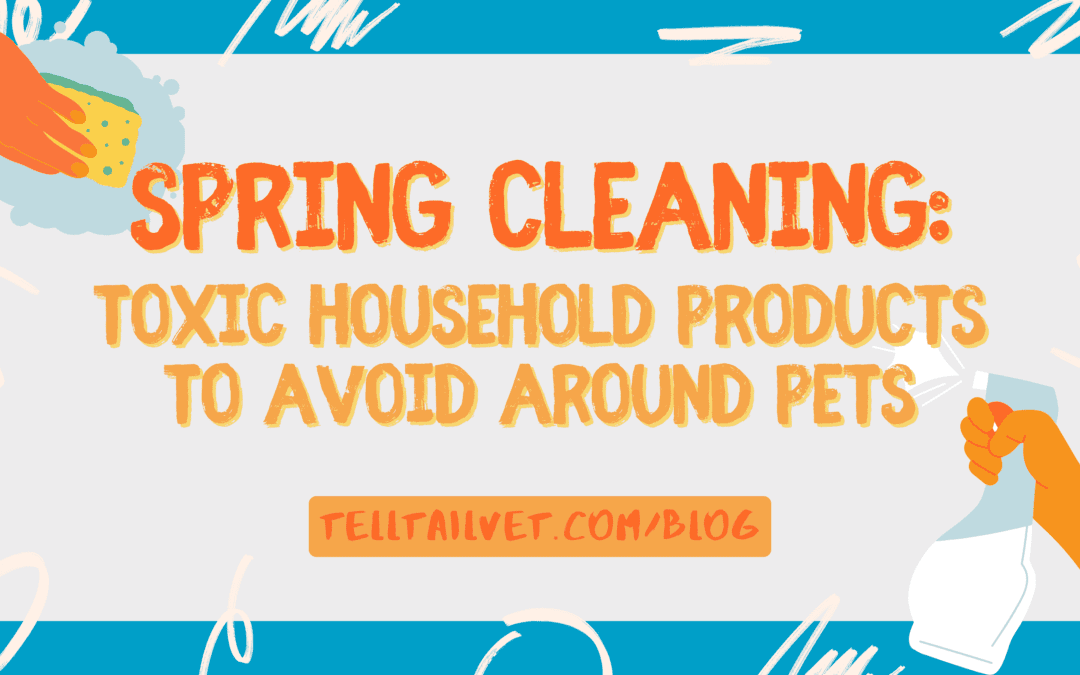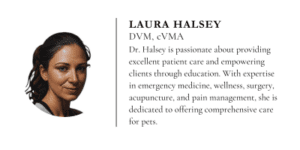Spring cleaning is a great way to refresh your home, but many common cleaning products contain chemicals that can be dangerous to pets. Ingestion, exposure to fumes, or contact with chemical residues can cause serious health issues for dogs and cats. Here’s what pet owners should know about keeping their furry friends safe while tidying up.
Toxic Cleaning Products and Their Risks
Many everyday cleaning products contain ingredients that can harm pets if inhaled, licked, or absorbed through their paws. Here are some of the most dangerous:
-
Bleach and Disinfectants – Strong disinfectants, especially those with phenols (often found in products labeled “antibacterial” or “kills 99.9% of germs”), can cause chemical burns, drooling, vomiting, and difficulty breathing if ingested or inhaled. Even diluted bleach can cause irritation if pets walk on treated surfaces and later lick their paws.
-
Ammonia-Based Cleaners – Found in glass, oven, and multi-surface cleaners, ammonia can irritate pets’ eyes and respiratory systems, leading to coughing, sneezing, and difficulty breathing.
-
Toilet Bowl Cleaners – Many contain corrosive chemicals like hydrochloric acid or sodium hypochlorite, which can cause severe burns to a pet’s mouth and throat if they drink from a treated toilet.
-
Oven and Drain Cleaners – These contain highly caustic ingredients that can cause internal burns if ingested and severe respiratory distress if inhaled. Even lingering fumes can irritate a pet’s throat and lungs.
-
Carpet, Upholstery, and Floor Cleaners – Many contain solvents and detergents that can leave behind toxic residues. Pets who lie on freshly cleaned carpets or lick their paws after walking on a treated surface can ingest these chemicals, leading to stomach upset or poisoning.
-
Air Fresheners and Scented Sprays – Aerosolized chemicals can settle on pet fur and be ingested when they groom themselves. Plug-in air fresheners and sprays with artificial fragrances or essential oils (like tea tree, citrus, or eucalyptus) can be toxic, especially to cats.
How Pets Get Exposed to Cleaning Chemicals
Even if pets aren’t directly drinking from a cleaning bottle, they can still be exposed in several ways:
-
Licking Treated Surfaces – Residue from cleaners can remain on floors, countertops, and pet bedding. If a pet licks these surfaces, they may ingest harmful chemicals.
-
Walking on Damp Floors – Cleaning solutions can seep into a pet’s paw pads. If they groom themselves afterward, they may swallow toxic substances.
-
Inhaling Fumes – Many cleaning products release strong fumes that can irritate pets’ sensitive respiratory systems. Birds and small pets are especially vulnerable to airborne toxins.
-
Drinking Contaminated Water – Toilet bowl cleaners, mop buckets, or even sink basins with cleaning residue can be dangerous if a pet decides to take a sip.
Pet-Safe Cleaning Alternatives
For a safer cleaning routine, consider these pet-friendly options:
-
Diluted Vinegar and Baking Soda – Great for deodorizing and scrubbing surfaces without toxic residues.
-
Unscented, Pet-Safe Cleaning Products – Look for brands specifically designed for pet households, free from ammonia, bleach, and harsh solvents.
-
Steam Cleaning – A natural way to sanitize floors and upholstery without chemicals.
-
Hydrogen Peroxide (Properly Diluted) – A milder disinfectant that can be used for stain removal and surface cleaning.
Spring Cleaning Safety Tips for Pet Owners
-
Keep Pets in a Separate Room While Cleaning – Limit their exposure to fumes and wet surfaces until everything is completely dry.
-
Rinse and Wipe Down Surfaces After Cleaning – If you must use a strong cleaner, rinse floors and wipe down surfaces with water to remove chemical residues.
-
Store Cleaning Products Securely – Keep all cleaners in cabinets or high shelves where pets can’t access them.
-
Use Ventilation – Open windows and use fans to help dissipate fumes, especially when using strong disinfectants or sprays.
-
Avoid Misting Sprays and Aerosols – Opt for wipes or liquid cleaners applied with a cloth to minimize airborne exposure.
What to Do If Your Pet Ingests a Toxic Cleaner
If you suspect your pet has ingested or been exposed to a toxic cleaning product, contact ASPCA Animal Poison Control at (888) 426-4435 immediately. They can provide guidance on next steps based on the type and amount of exposure.
By being mindful of cleaning product ingredients and how they can affect pets, you can keep your home fresh and safe for your furry companions. Taking simple precautions can help prevent accidental ingestion or exposure, making spring cleaning worry-free for both you and your pet.


